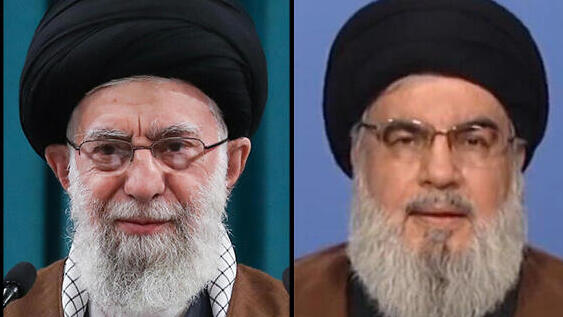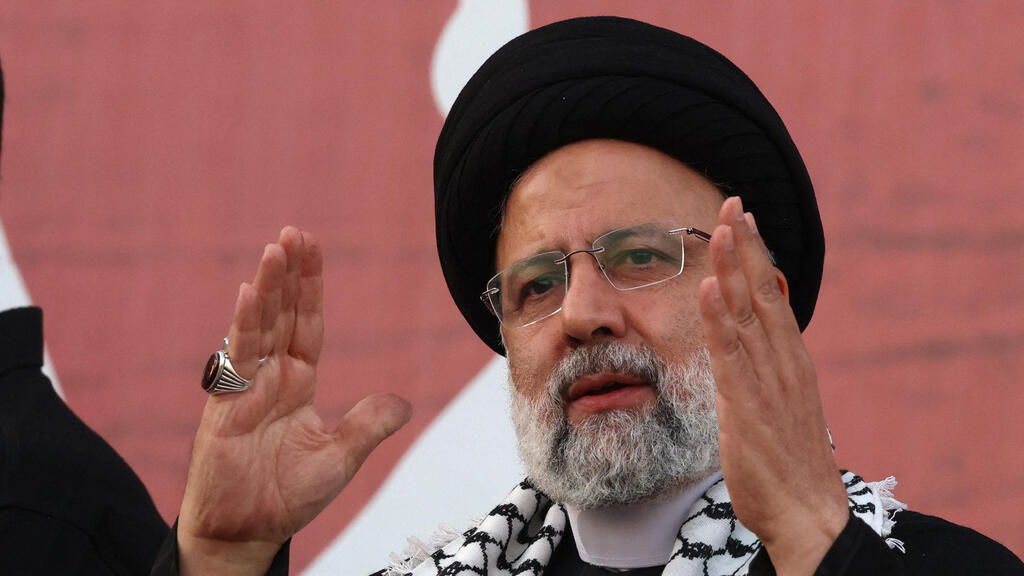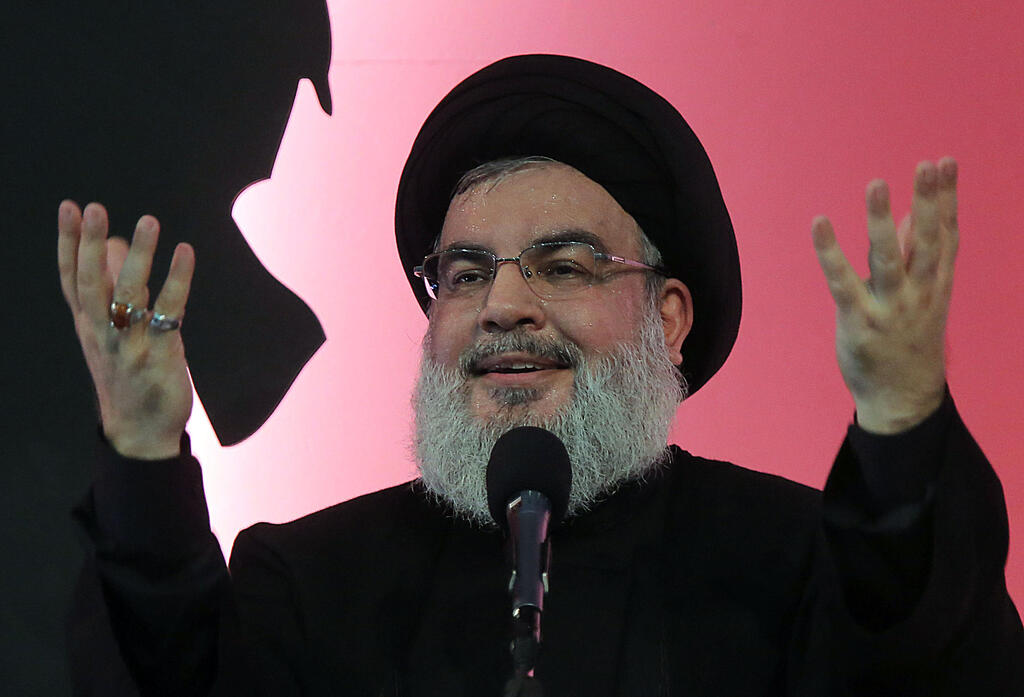The prevailing conception about the Hezbollah terrorist army is that while it is an Iranian proxy it is also a Lebanese entity with a substantial measure of independence to decide autonomously if and when to confront Israel.
Read more:
This view further posits that Hezbollah has limited its involvement in the current Israel war with Hamas—both geographically and qualitatively— because its leader Hassan Nasrallah is deterred by the devastation the IDF unleashed on Gaza and the fact that it is currently fully ready for action which rules out a surprise attack like the one inflicted by Hamas on October 7.
Moreover as a result of his efforts to appear as first and foremost a Lebanese patriot dedicated to protecting the country’s national interests, Nasrallah is facing mounting domestic pressures to eschew war. Given the country’s dire economic and political conditions, there are widespread concerns that a conflict with Israel will result in a Gaza-type outcome which may doom the Lebanese state.
But we must consider another hypothesis— Hezbollah is an extension of Iran’s nuclear program. It is no different than another component of the Iranian plan namely its growing arsenal of medium-range ballistic missiles (MRBMs) such as the Ghadr-1 or the Emad-1, some of which undoubtedly are slated to carry nuclear warheads when those become available, but which currently act as Iran’s conventional strategic deterrent.
For its part, Hezbollah provides Tehran operational flexibility—i.e. the option of actually employing conventional rockets and missiles, when needed, without involving the mullahs directly and without Iran having to resort to its MRBMs which would surely ignite an all-out war.
That said, it is important to understand that Hezbollah’s main mission is the same as Iran’s long-range missiles, namely to deter its enemies from attack and especially prevent them from preempting Iran’s evolving nuclear program. Hezbollah is Iran’s “second strike force” designed exclusively to launch paralyzing retaliatory strikes in case Israel attacks its nuclear sites which, Tehran calculates, should dissuade the “Zionist regime” from such a “foolish adventure.”
In its inception, Hezbollah was certainly not meant to be an integral part of Iran’s strategic armory but as the Islamic Republic embarked on becoming a nuclear-armed state it increasingly transformed the organization to serve as a shield for its most important strategic program.
Iran had all the reasons to believe that October 7 would trigger an Israeli preemption. A widespread Israeli consensus that “Never Again is Now” and a suspicion that the attack was if not the product of Iran at least carried out with its blessings— would have been seen in Tehran as a harbinger of an impending Israeli attack.
Moreover, in the wake of October 7, there is a high probability Tehran had decided it must have a nuclear weapons capability. The mullahs have probably concluded that if they had nukes Iran could have provided a strategic umbrella to Hezbollah and more importantly the U.S. would not have intervened in the conflict in support of Israel as it has done.
Even if Hezbollah maintains certain independence from its Iranian sponsor and its operations are not always coordinated with Tehran, it passionately shares the Islamic Republic’s strategic goal of dominating the Middle East and thus fully supports its relentless pursuit of nuclear weapons.
Additionally, even if Iran was not behind the Hamas attack or surprised by it, it stands to reason that it did not take long for the mullahs to appreciate the opportunity Israel’s prolonged entanglement in Gaza accords Iran’s nuclear aspirations.
In this context, Iran’s President Ibrahim Raisi’s rather puzzling statement on January 5 (at the funeral for the 89 people killed in Kerman by the Islamic State group) that the Hamas attack will bring about the downfall of Israel, acquires a truly ominous ring. As he declared “We know that ‘Al-Aqsa Flood’ operation [the Hamas name for the massacre it perpetrated] will bring about the end of the Zionist regime.”
Either way, it must be considered that Hezbollah’s current restraint is geared to tie down the IDF on Israel’s northern border in a protracted “sideshow” for as long as possible and thus necessarily force it to forsake going after Iran. In addition to attriting the IDF’s capabilities and the stamina of the Israeli public, Nasrallah also aims to relieve pressure off Hamas and buy it time so it can continue to fight in Gaza. Combined, the idea is to provide Iran the option of sprinting to the bomb unhindered by a diverted Israel.
To serve this strategy, Nasrallah often provides reasons why there is no need to escalate the limited offensive role he has adopted since October 8 – the most recent of which is because Israel had lost the engagement and Hezbollah is already victorious.
The last thing Nasrallah and Khameini wish for is to embroil Hezbollah in a full-scale war with Israel to rescue Hamas of all things, especially now that the IDF is at top readiness. They deeply worry that such an engagement will result in the loss or significant degradation of the deterrent posture of the terrorist army they labored hard to assemble for years. The unfolding of such a scenario may force Iran to intervene and could mean in effect the unraveling of the Iranian-Hezbollah plot for the mullahs to get to the bomb.
Khamenei’s “strategic patience” or “ strategic restraint” directive to his military commanders, to “avoid a direct military confrontation with the U.S. at all costs,” to cite the New York Times on January 5, is in line with this plan. Presumably, Iran estimates that a regional conflagration possibly involving the Americans may end up costing it its nuclear aspirations.
It should be noted that in its report released late last December, the International Atomic Energy Agency (IAEA) said that the month earlier Iran “increased its production of highly enriched uranium, reversing a previous output reduction from mid-2023.”
If so Israel by limiting its actions in the north, although in line with its interests of dealing with one front at a time, is playing into Iran’s hands. Moreover, a political arrangement with Hezbollah is probably unattainable if it means freeing the IDF hands.
Assuming this analysis to be correct the only thing to stand between the Iranian scheme and the breakout to nuclear weapons is the mullahs’ uncertainty as to Biden’s credibility when he vowed that Iran will not acquire nuclear weapons under his watch. That would mean America’s enhanced regional posture to deter such an Iranian gambit could not be a temporary measure.
It would appear the Biden administration is in agreement with this conclusion as it similarly assesses the Iranian scheme and is determined to frustrate it. For example, CNN on January 2, reported that “[t]he United States has quietly reached an agreement that extends its military presence at a base in Qatar for another 10 years.”
Accordingly, the deal pertains to the use of Al Udeid Air Base, located in the desert southwest of Doha—the biggest U.S. military installation in the Middle East and can house more than 10,000 American troops. It follows the visit of U.S. Defense Secretary Lloyd Austin to Qatar the month earlier where he stated that the U.S. and Qatar “will formally take steps forward to expand and reinforce our bilateral defense relationship…We’ll do this through Qatar’s commitment to contribute significant resources to increase capabilities here at Al Udeid Air Base, and that will support both of our forces for years to come.”
Still, as long as Israel “plays” by the Iran-Hezbollah rules—i.e. restricts itself to retaliatory action aimed at containing the firefights in the north rather than launch a full-scale offensive a la Gaza —it advances the mullahs’ scheme to acquire nuclear weapons. As well instead of utilizing the U.S. strategic umbrella as a deterrent to prevent an Iranian intervention in such an undertaking, Israel’s relative passivity only deepens its strategic dependence on the U.S.
- Dr. Avigdor Haselkorn is a strategic analyst and the author of books, articles and op-eds on national security affairs





